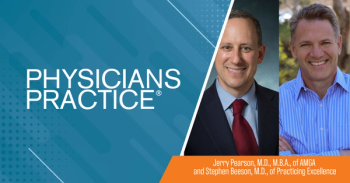
There Will Always Be Helpers in Medicine
The events of the Boston Marathon make me reflect on my own disaster response experience and my gratitude for all the 'helpers.'
"When I was a boy and I would see scary things in the news, my mother would say to me, 'Look for the helpers. You will always find people who are helping.'"
â
Life is always surprising, both good surprises and bad ones. April 15 just took on new meaning other than Tax Day when those men let loose explosives at the finish line of the Boston Marathon. This was definitely a very bad surprise. All the innocent people including families with children unsuspectingly arrived at Boylston Street to watch the marathoners when in an instant, their lives were forever changed. All were affected emotionally and many were affected physically.
As I watched the news reports, there were repeated stories of the first responders and the medical teams that sprang into action to help the unfortunate victims. This is what helpers do - they help whenever and wherever needed. They are trained to focus on the immediate problem at hand and attend to the most important needs first. This training allows the helpers to calmly assist those that need their help.
I was involved in a disaster response when I was in residency training. I was in my second year of pediatrics training on Long Island, N.Y. The night of January 25, 1990, I was on call in the neonatal intensive care unit (NICU) along with an intern and the fellow. I can’t remember how we heard about the Avianca flight that crashed at 9:34 p.m. in Cove Neck, about 15 miles from my hospital, but I do remember hearing a request for any Spanish-speaking personnel to come to the emergency room as the victims arrived.
I was one of the very few residents that spoke Spanish. As I got to the ER, we were informed that there were a lot of children on the flight and that most of the victims were expected to speak limited English, if any. As the ambulances started to arrive, each of the victims was given a number that was written on the bottom of their foot, starting with number 1 and continuing until a total of 18 patients arrived at our hospital. As I remember, we received 8 or 9 of the 27 children that were on that flight. Many of these children were coming to the U.S. to be adopted by American families.
That night was a long time ago but what I vividly remember was speaking with these kids, trying to calm them down, and mostly trying to distract them. One pediatric resident was assigned to each child and was to follow that child exclusively to help with medication dosing as well as to monitor their progress as each was triaged from ER to surgery, ICU, or the pediatric floor. I did what I could since I had to keep bouncing between the ER and the NICU.
All the children in our hospital survived; most of them having had non-life threatening injuries. They all eventually recovered their real names in place of patient numbers and all eventually arrived at their intended destinations.
What has stayed with me after 23 years was the intensity with which all the medical providers worked as an immense, cohesive team and focused on the immediate needs of the survivors. There are few experiences to compare with being able to help victims that didn’t expect what just happened to them.
I love what Mr. Rogers has to say about helpers. This is a thank you note to all helpers.
Newsletter
Optimize your practice with the Physicians Practice newsletter, offering management pearls, leadership tips, and business strategies tailored for practice administrators and physicians of any specialty.








